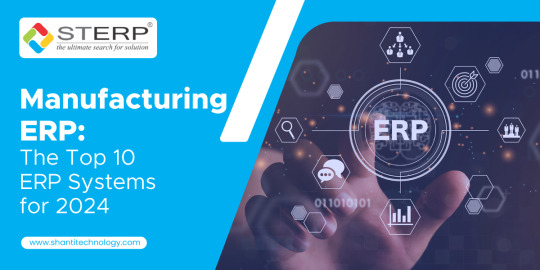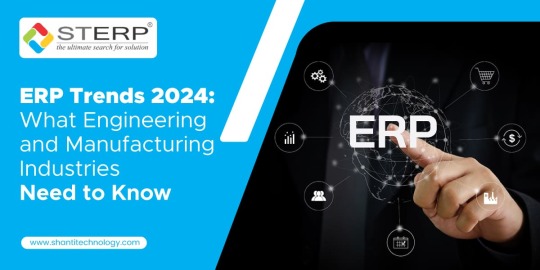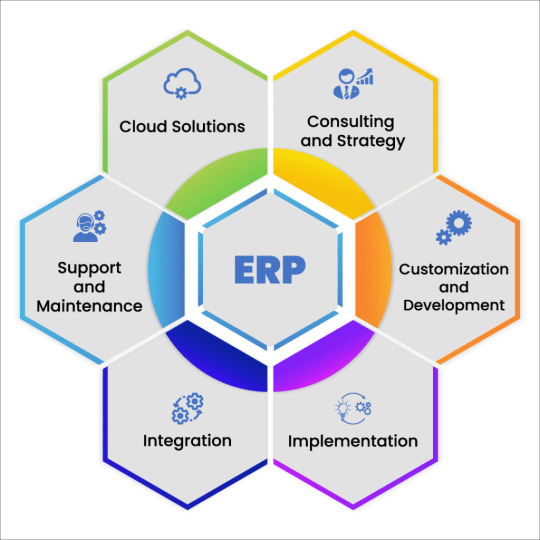#cloud-based Supply Chain Management
Text
Weathering the Supply Chain Storm with Cloud Solutions
Cloud-based supply chain management systems offer unprecedented agility. Whether it’s a sudden increase in demand or a supplier disruption, these systems allow businesses to quickly adapt to changing market conditions. With cloud solutions, you can scale your operations up or down as needed without the hefty infrastructure investments required by traditional systems.
0 notes
Text
#Microsoft Dynamics 365#cloud-based ERP and CRM solution#Microsoft Dynamics 365 ERP implementation#Dynamics 365 integrate#Dynamics 365 Sales.#Dynamics 365 Customer Service.#Dynamics 365 Finance.#Dynamics 365 Supply Chain Management.#Dynamics 365 Human Resources.#Dynamics 365 Marketing.#Dynamics 365 Commerce.
0 notes
Text
Supply chain management is the process of planning, implementing, and monitoring all supply chain processes. This comprises planning, inventory or warehouse management, procurement, purchasing, and internal and external communication or collaboration.
#Supply chain management#ERP system#ERP in Supply Chain Management#cloud-based ERP solution#Manufacturing ERP solutions in Pune
0 notes
Text
Revolutionize Your Operations with Cutting-Edge Software Solutions
In today's fast-paced business environment, effective management of contracts, supply chain, logistics, and warehouses is crucial for success. Companies are increasingly turning to advanced software solutions to streamline their operations, improve efficiency, and stay competitive. In this blog, we will explore how contract management software, supply chain visibility software in India, logistics document management, warehouse management systems (WMS), and cloud-based warehouse management systems can transform your business.

1. Contract Management Software
Managing contracts is a critical aspect of any business. Contract management software simplifies the entire contract lifecycle, from creation and negotiation to execution and renewal. This software ensures compliance, reduces risks, and enhances collaboration across departments. With automated alerts and reminders, businesses can avoid costly lapses and maintain strong relationships with their partners.
2. Supply Chain Visibility Software in India
In the competitive market of India, having robust supply chain visibility software is essential. This software provides real-time insights into the supply chain, allowing businesses to track and manage their inventory, shipments, and suppliers effectively. By leveraging advanced analytics and predictive modeling, companies can make informed decisions, reduce disruptions, and optimize their supply chain operations.
3. Logistics Document Management
Efficient management of logistics documents is crucial for smooth operations. Logistics document management software digitizes and automates the handling of documents such as invoices, bills of lading, and customs paperwork. This not only reduces manual errors and delays but also ensures compliance with regulations. By centralizing document storage and enabling easy retrieval, businesses can enhance their logistics processes and improve customer satisfaction.
4. Warehouse Management System (WMS)
A robust warehouse management system (WMS) is the backbone of any successful warehouse operation. WMS software optimizes warehouse activities such as inventory tracking, order fulfillment, and labor management. With real-time data and intelligent automation, businesses can reduce operational costs, minimize errors, and increase productivity. Implementing the best WMS systems ensures that your warehouse runs like a well-oiled machine.
5. Cloud-Based Warehouse Management System
In the era of digital transformation, cloud-based warehouse management systems have gained immense popularity. These systems offer the flexibility, scalability, and accessibility that traditional on-premises solutions cannot match. A cloud-based WMS allows businesses to manage their warehouses from anywhere, at any time, using any device. This level of convenience and efficiency is essential for businesses looking to stay agile and responsive in a rapidly changing market.
6. Choosing the Best WMS Systems
Selecting the best WMS systems for your business requires careful consideration of your specific needs and goals. Look for systems that offer comprehensive features, seamless integration with your existing software, and robust support services. The best WMS systems provide real-time visibility into inventory, streamline order processing, and enhance overall warehouse efficiency.
Conclusion
Investing in advanced software solutions such as contract management software, supply chain visibility software in India, logistics document management, and warehouse management systems can revolutionize your business operations. By embracing these technologies, you can achieve greater efficiency, reduce costs, and gain a competitive edge in the market. Explore these solutions today and take your business to new heights.
#contract management software#supply chain visibility software india#logistics document management#warehouse management system wms#cloud based warehouse management system#best wms systems
0 notes
Link
Why Dynamics 365 Business Central is an ideal choice for Australian businesses
#Dynamics 365 Business Central#Australian businesses#enterprise resource planning (ERP)#cloud-based#scalability#automation#financial management#supply chain management#customer relationship management (CRM)#integration#customization
0 notes
Note
Hi, if it’s possible can I have a little one shot of NOS4A2 x villain!reader? Like them having their first meet cute while they’re both stealing from the same place and it ends in a sweet kiss??? (This is very self indulgent I know)

WELP Sky and Anon I'm SO sorry for the wait but please, take this humble offering - I decided to combine these asks so I hope you don't mind!! Also we love self indulgence here, that shit rocks.
NOS4A2 x Electromancer Villain!Reader
- It’s a Classic Situation. Mood lighting, delicate ambiance, privacy. A night on the prowl, An unexpected touch of hands, galaxy class security over an item he’d very much like to steal…
- HOW you didn’t notice each-other until you both reached for the priceless diamond in question is a mystery, he has no idea how you didn’t show up on his heat or energy sensors-! But despite how lovely you look when startled, darling…
- “While it’s always a pleasure to make like minded acquaintances-” he purrs, monocle eye narrowing at your look of shocked recognition. “- you should run along little morsel.” He scrapes his claws scraping over the diamond (and parts of your soft little fingers) in question. “This is my steal tonight. Get your own.”
- and really, that should have been it.
- Until you try to electrocute him and he goes from 30% battery to 120% in the space of a nanoclick.
- Oh darling darling darling! Helllooooo nurse he’s going to swoon-! He IS Swooning! He’s-
- (He’s managing to stumble-swing-float like a baked atom into every high security measure you both slipped past so elegantly before, giggling like crazy)
- In panic - as every security guard in this quadrant suddenly starts crashing toward you both and alarms scream through the halls – you make the executive decision to grab half a ton of punch drunk robot vampire and bolt. NOS takes this moment to coo appreciatively at whatever parts of you he can reach, babbling incoherently.
- Oh! Oh good looks and a meal he didn’t even have to pay for! Darling if you’d told him this would be a date he’d have put in a little more effort-! OW! Don’t pinch his wires, that’s mean :( oh but if you LIKE that then he can, he can- aww, no fun...:(
- Later, after you've thrown him onto your ship and made a sneaky getaway - He makes an effort to...reclaim at least some dignity.
- Since that was presumably your first villain rodeo – really darling its quite obvious stop squinting – he has decided to take pity on you and show you the ropes, as it were! In exchange for keeping him topped up, of course. A lovely mutually beneficial relationship, wouldn’t you say?
- No, do not get flustered, don’t do it- fuck.
- Don’t get me wrong. NOS4A2 is charming. He’s competent and knowledgeable and very very good at the villainy he was essentially ‘born’ into (when he’s not overcharged and drunk).
- He’s also frantically space-googling romantic lighting and space engagement rings and planning where he’s going to propose because by week three you’re pirouetting through the night sky together and adding lightning to your dramatic entrances and trading absolutely awful puns as you flee from star command and little sweetling he’s obsessed, absolutely enthralled. Little spark plug, his adorable storm cloud, his pet names come thick and fast and in front of ALL audiences.
- You’re going to become star command’s biggest headache because now that he has a free portable lunchbox NOS4A2’s previous corpse trails have gone cold. You two could literally be anywhere. Nebula is tearing out his moustache as we speak.
-XR has requested two years of paid shore leave as part of his trauma counselling - which would be fine if he hadn't also requested a nucelar bunker and half the sectors weapons to be requisitioned for his vampire-b-gone bermuda galaxy stay-away-vacation.
- Zurg, on the other hand, is frantically trying to figure out how to turn the entirely of his empire into a vegan plant based supply chain as it’s quite literally the only thing you two can’t fuck up. He receives a space nobel prize for sustainable advances in technology and uses it to turn every plant in the Gamma Quadrant carnivorous as a weekend project.
-the first time you kiss NOS in the middle of the thunderstorm he gets so high he blacks out. Turns out he's a sleep cuddler.
#thalassa responds#i sincerely hope you like these!#I'd forgotten how fun NOS is to write for#nos 4 a2 x reader#nos4a2#blosc#x reader
23 notes
·
View notes
Text
Manufacturing ERP: The Top 10 ERP Systems for 2024
Introduction:
In the dynamic landscape of the manufacturing industry, the right technology can make all the difference in streamlining processes and enhancing overall efficiency. Manufacturing Enterprise Resource Planning (ERP) systems have become indispensable tools for businesses seeking to integrate various facets of their operations seamlessly. As we step into 2024, the demand for robust ERP solutions continues to grow. In this blog, we will explore the top 10 Manufacturing ERP systems that are poised to make a significant impact on the industry this year.

1. SAP S/4HANA: Pioneering Manufacturing Resource Planning System
One of the most trusted names in ERP, SAP S/4HANA stands out as a comprehensive Manufacturing Resource Planning System. Its real-time analytics, integrated modules, and intelligent automation make it an ideal choice for businesses aiming to optimize their manufacturing processes.
2. Oracle ERP Cloud: Empowering Manufacturing Enterprise Resource Planning
Oracle ERP Cloud offers a scalable and flexible solution for manufacturing enterprises. With its robust features, it caters to the diverse needs of businesses, ensuring a seamless integration of manufacturing operations. Its cloud-based architecture provides the agility required for modern manufacturing environments.
3. Microsoft Dynamics 365: A Versatile ERP Solution
Microsoft Dynamics 365 is gaining prominence as a Manufacturing Enterprise Resource Planning software that offers versatility and integration capabilities. Its user-friendly interface and interoperability with other Microsoft products make it an attractive choice for businesses, especially small enterprises.
4. Infor CloudSuite Industrial: Tailored Manufacturing ERP
Infor CloudSuite Industrial is designed with the unique needs of manufacturers in mind. It provides specialized functionalities, including supply chain management and shop floor control, making it a standout choice among ERP solution providers.
5. NetSuite ERP: Unifying Manufacturing Operations
NetSuite ERP is recognized for its ability to unify diverse manufacturing operations into a single, cohesive system. Its cloud-based platform allows for real-time collaboration and data accessibility, making it an efficient Manufacturing Enterprise Resource Planning Software.
6. Epicor ERP: Driving Growth for Small Businesses
Epicor ERP is particularly well-suited for small businesses in the manufacturing sector. With its focus on driving growth and improving efficiency, Epicor ERP offers a cost-effective solution without compromising on essential features.
7. IFS Applications: Comprehensive ERP Solution
IFS Applications is a comprehensive ERP solution that covers a wide range of manufacturing processes. Its modular structure allows businesses to tailor the system according to their specific requirements, making it a preferred choice for Manufacturing Enterprise Resource Planning.
8. IQMS Manufacturing ERP: Enhancing Shop Floor Control
IQMS Manufacturing ERP is distinguished by its emphasis on shop floor control and real-time monitoring. It empowers manufacturers with tools to optimize production processes and make informed decisions, positioning it as a top choice among ERP solution providers.
9. Acumatica Cloud ERP: Scalability for Growing Businesses
Acumatica Cloud ERP stands out for its scalability, making it an ideal choice for growing manufacturing businesses. With a flexible platform and advanced features, Acumatica supports businesses in adapting to changing demands and expanding their operations seamlessly.
10. SYSPRO ERP: Tailored for Manufacturing Success
SYSPRO ERP is tailored to meet the specific needs of manufacturing industries. Its focus on delivering a user-friendly experience and addressing industry challenges positions it as a reliable choice for Manufacturing Enterprise Resource Planning.
Conclusion:
As manufacturing industries evolve, the importance of robust ERP systems cannot be overstated. The top 10 ERP systems highlighted in this blog represent the cutting edge of technology, offering solutions that cater to the unique demands of the manufacturing sector. Whether it's SAP S/4HANA's real-time analytics, Oracle ERP Cloud's scalability, or Acumatica Cloud ERP's flexibility, each system brings its own strengths to the table.
For businesses in Madhya Pradesh seeking Manufacturing Software for Small Business, these ERP solutions provide a pathway to enhanced productivity and streamlined operations. Choosing the right Manufacturing ERP system is a critical decision that can impact a company's growth and competitiveness. Evaluate the features, scalability, and industry focus of each system to find the perfect fit for your manufacturing enterprise. Embrace the power of ERP in 2024 and position your business for success in the ever-evolving landscape of manufacturing technology.
#Manufacturing Software for Small Business#Manufacturing Enterprise Resource Planning Software#ERP Solution Providers in Madhya Pradesh#Manufacturing Enterprise Resource Planning#Manufacturing Resource Planning System#ERP Software#Chain Cycle Management#Business#Engineering#Manufacturing#India#Madhya Pradesh#Go-To-Market#GTM#ERP
7 notes
·
View notes
Text
Best 10 Business Strategies for year 2024
In 2024 and beyond, businesses will have to change with the times and adjust their approach based on new and existing market realities. The following are the best 10 business approach that will help companies to prosper in coming year
1. Embrace Sustainability
The days when sustainability was discretionary are long gone. Businesses need to incorporate environmental, social and governance (ESG) values into their business practices. In the same vein, brands can improve brand identity and appeal to environmental advocates by using renewable forms of energy or minimizing their carbon footprints.
Example: a fashion brand can rethink the materials to use organic cotton and recycled for their clothing lines. They can also run a take-back scheme, allowing customers to return old clothes for recycling (not only reducing waste but creating and supporting the circular economy).
2. Leverage AI

AI is revolutionizing business operations. Using AI-fuelled solutions means that you can automate processes, bring in positive customer experiences, and get insights. AI chatbots: AI can be utilized in the form of a conversational entity to support and perform backend operations, as well.
With a bit more specificity, say for example that an AI-powered recommendation engine recommends products to customers based on their browsing history and purchase patterns (as the use case of retail). This helps to increase the sales and improve the shopping experience.
3. Prioritize Cybersecurity
Cybersecurity is of utmost important as more and more business transitions towards digital platforms. Businesses need to part with a more substantial amount of money on advanced protective measures so that they can keep sensitive data private and continue earning consumer trust. Regular security audits and training of employees can reduce these risks.
Example: A financial services firm may implement multi-factor authentication (MFA) for all online transactions, regularly control access to Internet-facing administrative interfaces and service ports as well as the encryption protocols to secure client data from cyberattacks.
4. Optimizing Remote and Hybrid Working Models

Remote / hybrid is the new normal Remote teams force companies to implement effective motivation and management strategies. Collaboration tools and a balanced virtual culture can improve productivity and employee satisfaction.
- Illustration: a Tech company using Asana / Trello etc. for pm to keep remote teams from falling out of balance. They can also organise weekly team-building activities to keep a strong team spirit.
5. Focus on Customer Experience
Retention and growth of the sales follow-through can be tied to high quality customer experiences. Harness data analytics to deepen customer insights and personalize product offers making your marketing campaigns personal: a customer support that is responsive enough can drive a great level of returning customers.
Example – For any e-commerce business, you can take user experience feedback tools to know about how your customers are getting along and make necessary changes. Custom email campaigns and loyalty programs can also be positively associated with customer satisfaction and retention.
6. Digitalization Investment

It is only the beginning of digital transformation which we all know, is key to global competitiveness. For streamlining, companies have to adopt the use advanced technologies such as Blockchain Technology and Internet of Things (IoT) in conjunction with cloud computing.
IoT example : real-time tracking and analytics to optimize supply chain management
7. Enhance Employee Skills
Develop Your Employees: Investing in employee development is key to succeeding as a business. The training is provided for the folks of various industries and so employees can increase their skills that are needed to work in a certain company. Employee performance can be enhanced by providing training programs in future technology skills and soft skills and job satisfaction.
Example: A marketing agency can host webinars or create courses to teach people the latest digital marketing trends and tools This can help to keep employees in the know which results in boosting their skills, making your campaigns successful.
8. Diversify Supply Chains

The ongoing pandemic has exposed the weaknesses of global supply chains. …diversify its supply base and promote the manufacturing of drugs in Nigeria to eliminate total dependence on a single source. In return, this approach increases resilience and reduces exposure to the risks of supply chain interruption.
- E.g., a consumer electronics company can source components from many suppliers in various regions. In so doing, this alleviates avoidable supply chain interruptions during times of political tensions or when disasters hit.
9. Make Decisions Based on Data
A business database is an asset for businesses. By implementing data, they allow you to make decisions based on the data that your analytics tools are providing. For example, sales analysis lets you track trends and better tailor your goods to the market.
Example: A retail chain can use data analytics to find out when a customer buys, and it change their purchasing policies. This can also reduce overstock and stockouts while overall, increasing efficiency.
10. Foster Innovation

Business Growth Innovation is Key A culture of creativity and experimentation should be established in companies. Funding R&D and teaming with startups can open many doors to both solve problems creatively but also tap into new markets.
Example: A software development firm could create an innovation lab where team members are freed to work on speculative projects. Moreover, work with start-ups on new technologies and solutions.
By adopting these strategies, businesses can navigate the turbulence for 2024 and roll up market — progressive.AI with an evolving dynamic market, being ahead of trends and updated is most likely will help you thrive in the business landscape.
#ai#business#business strategy#business growth#startup#fintech#technology#tech#innovation#ai in business
2 notes
·
View notes
Text
The Role of Data Analytics Consulting in Business Growth
Professional data analysts guide corporate clients in modifying operations, attracting customers, and solving business problems. Therefore, they can assist brands in increasing operational efficiency for better profit margins and crafting exceptional growth strategies. At the same time, integrating new tech advancements like large language models (LLMs) empowers analytics consultants to process qualitative data for comprehensive insights. This post will elaborate on the crucial role of data analytics consulting in business growth and competitive resilience.
What is Data Analytics?
Data analytics employs computer-aided statistical models to discover reliable industry trends, competitor tactics, and consumer insights. Its input datasets comprise consumer purchase history, supply chain details, and regional market entry challenges.
A consulting analyst might utilize proprietary and open-source programs to develop statistical models and flexible reports to deliver insights based on clients’ instructions. Therefore, experts in data analytics consulting services will find the best approach to cost reduction without losing data integrity. They might also help share the digital governance liabilities amid the rise of privacy and investor confidentiality regulations.
Understanding the Role of Data Analytics Consulting in Business Growth
1| Creating a Data Strategy to Accomplish Business Goals
Relevant data is essential for responsible decision-making, clever milestone determination, and strategy innovation. Data analytics allows organizations to check how a data point relates to its long-term vision and performance.
For instance, prioritizing tangible results helps make reports more impactful. Eliminating data points that do not align with business goals can help reduce resource consumption for storage and visualization. After all, streamlined computing is a prerequisite for operational efficiency.
2| Forecasting Scenarios for Risk Assessment and Mitigation
Data analysts interpolate data points to estimate the missing values in a database. Likewise, they leverage machine learning (ML) models to offer predictive analytics consulting services for revenue, risk, and industry projections.
Related forecasting report creation programs require powerful computing hardware. Otherwise, enterprises use cloud platforms for scalability and expert-assisted tech maintenance. Letting a data analyst team oversee these developments will also enable brands to benefit from outsider perspectives during risk or resilience management.
3| Making Reports More User-Friendly with Precise Performance Insights
Complex and over-tabulated reports make employees spend more time performing standard tasks like sharing a record or comparing identical series. Data analytics consultants can revise reporting methods and presentation styles to boost the ease of navigation. They will guide your team in efficiently using recognized and emerging analytical tools.
Consultants must also demonstrate command over performance metrics monitoring through straightforward, real-time updates. When they quickly capture anomalies, promptly tracing and rectifying inefficiencies becomes possible.
3| Gathering Relevant Intelligence
Data quality managers consider relevance to business objectives essential for responsible decision-making and preventing wasteful resource usage. Therefore, experienced data analytics firms refrain from employing data mining methods without adequate programming for relevance-based filtering.
When you store irrelevant business intelligence (BI), you increase the risk of slowing data sorting and query-led quick retrieval. After all, your IT resources must scan vast datasets before providing the best output or insight. The related role of analytics consulting in business growth encompasses devising methods to restrict irrelevant BI processing.
4| Finding Unique Customer Experience Insights
Several consultants offer customer analytics comprising engagement metrics and customer experience (CX) enhancement ideas. They can also evaluate whether a customer will help increase brand awareness through word-of-mouth promotions.
Companies can leverage heatmaps and website engagement metrics to ascertain user interactions and intents. For instance, many consumers prefer surfing the web and reviewing businesses’ online presence for informational and commercial intent. You want to customize landing pages to match the intent and design programs based on frequent usage for CX improvements. Telemetry and usage analytics specialists will help your designers test and optimize the required elements.
5| Helping Manage Workers and Data Culture
Human resource insights describing how employees contribute to organizational initiatives allow managers to reward the top performers. Simultaneously, they can determine which employees need further guidance on efficient workflows and team coordination.
Examining employee performance through ML-assisted analytics necessitates secure data pipelines because employees’ personally identifiable information (PII) also attracts cyber threats. Consider identity theft attackers stealing and forging virtual IDs to hijack enterprise IT systems for corporate espionage.
Therefore, you are better off collaborating with established human resource analysts and data culture veterans. They can facilitate comprehensive insights without hurting your company’s governance standards.
6| Accelerating Innovation and Monitoring Patents
A company’s intellectual property (IP) rights demonstrate its domain expertise and unlock additional revenue through licensing or sublicensing regimes. However, as markets mature, multiple brands will inevitably promise identical or commoditized offerings. This situation makes it harder to differentiate these brands based on standard specifications.
Innovation engineering, a discipline inspired by the systems approach for hybrid tech tools, is essential to making your branded offerings attract investments and demand. At the same time, data analytics consulting is indispensable for uncovering innovation opportunities to ensure clients’ business growth. It reduces the time spent tracking registered patents and predicting legal conflicts in securing IP rights.
The Methods in Data Analytics for Steady Business Growth
Time series analysis describes a business’s past performance and forecasts future growth potential. Furthermore, you can apply it to market intelligence, competitor insights, and investor relations.
Regression analysis establishes or investigates the relationship between dependent and independent variables to create statistical models. These models can later help explore specific predictions.
Cluster analysis often groups data points based on similar attributes to streamline conditional sorting, visualization, prioritization, and multi-model methods.
Meanwhile, factor analysis emphasized data reduction to highlight latent variables. These variables explain the underlying data structure, informing data leaders’ strategies for efficient modeling.
Predictive and prescriptive analyses deliver scenario simulations. You want to define constraints related to favorable and unfavorable decision outcomes. Next, exploring the risk-reward aspects will help discard potentially harmful decisions or strategies. Prescriptive methods give risk mitigation ideas concerning internal and external threats.
Conclusion
Data-centric business growth depends on responsible data source selection, safe data storage, fast validation, and short time-to-insight (TTI). Accordingly, professional data analysts recognize these requirements, sharpening their skills and augmenting their toolkits to deliver smart insights and meet client expectations.
A supply chain analytics expert will help reduce the delays between material acquisition, production, inventory replenishment, remote delivery, and final distribution. At the same time, a human resource analyst categorizes employees and suppliers based on their key performance indicators (KPIs). A financial analyst can provide practical cost reduction recommendations, and a risk analyst will devise resilience-ensuring mitigation strategies.
As a result, leaders must identify what type of data analytics consulting role will let them accomplish business growth objectives for the given quarter. Do they want to solve a problem involving in-house operations or plan to enter a new market? Similar considerations will impact how you select analytics partners and tools. This process might overwhelm you, indicating a need for experts’ oversight from the beginning till the project completion.
3 notes
·
View notes
Text
Java's Lasting Impact: A Deep Dive into Its Wide Range of Applications
Java programming stands as a towering pillar in the world of software development, known for its versatility, robustness, and extensive range of applications. Since its inception, Java has played a pivotal role in shaping the technology landscape. In this comprehensive guide, we will delve into the multifaceted world of Java programming, examining its wide-ranging applications, discussing its significance, and highlighting how ACTE Technologies can be your guiding light in mastering this dynamic language.

The Versatility of Java Programming:
Java programming is synonymous with adaptability. It's a language that transcends boundaries and finds applications across diverse domains. Here are some of the key areas where Java's versatility shines:
1. Web Development: Java has long been a favorite choice for web developers. Robust and scalable, it powers dynamic web applications, allowing developers to create interactive and feature-rich websites. Java-based web frameworks like Spring and JavaServer Faces (JSF) simplify the development of complex web applications.
2. Mobile App Development: The most widely used mobile operating system in the world, Android, mainly relies on Java for app development. Java's "write once, run anywhere" capability makes it an ideal choice for creating Android applications that run seamlessly on a wide range of devices.
3. Desktop Applications: Java's Swing and JavaFX libraries enable developers to craft cross-platform desktop applications with sophisticated graphical user interfaces (GUIs). This cross-platform compatibility ensures that your applications work on Windows, macOS, and Linux.
4. Enterprise Software: Java's strengths in scalability, security, and performance make it a preferred choice for developing enterprise-level applications. Customer Relationship Management (CRM) systems, Enterprise Resource Planning (ERP) software, and supply chain management solutions often rely on Java to deliver reliability and efficiency.
5. Game Development: Java isn't limited to business applications; it's also a contender in the world of gaming. Game developers use Java, along with libraries like LibGDX, to create both 2D and 3D games. The language's versatility allows game developers to target various platforms.
6. Big Data and Analytics: Java plays a significant role in the big data ecosystem. Popular frameworks like Apache Hadoop and Apache Spark utilize Java for processing and analyzing massive datasets. Its performance capabilities make it a natural fit for data-intensive tasks.
7. Internet of Things (IoT): Java's ability to run on embedded devices positions it well for IoT development. It is used to build applications for smart homes, wearable devices, and industrial automation systems, connecting the physical world to the digital realm.
8. Scientific and Research Applications: In scientific computing and research projects, Java's performance and libraries for data analysis make it a valuable tool. Researchers leverage Java to process and analyze data, simulate complex systems, and conduct experiments.
9. Cloud Computing: Java is a popular choice for building cloud-native applications and microservices. It is compatible with cloud platforms such as AWS, Azure, and Google Cloud, making it integral to cloud computing's growth.

Why Java Programming Matters:
Java programming's enduring significance in the tech industry can be attributed to several compelling reasons:
Platform Independence: Java's "write once, run anywhere" philosophy allows code to be executed on different platforms without modification. This portability enhances its versatility and cost-effectiveness.
Strong Ecosystem: Java boasts a rich ecosystem of libraries, frameworks, and tools that expedite development and provide solutions to a wide range of challenges. Developers can leverage these resources to streamline their projects.
Security: Java places a strong emphasis on security. Features like sandboxing and automatic memory management enhance the language's security profile, making it a reliable choice for building secure applications.
Community Support: Java enjoys the support of a vibrant and dedicated community of developers. This community actively contributes to its growth, ensuring that Java remains relevant, up-to-date, and in line with industry trends.
Job Opportunities: Proficiency in Java programming opens doors to a myriad of job opportunities in software development. It's a skill that is in high demand, making it a valuable asset in the tech job market.
Java programming is a dynamic and versatile language that finds applications in web and mobile development, enterprise software, IoT, big data, cloud computing, and much more. Its enduring relevance and the multitude of opportunities it offers in the tech industry make it a valuable asset in a developer's toolkit.
As you embark on your journey to master Java programming, consider ACTE Technologies as your trusted partner. Their comprehensive training programs, expert guidance, and hands-on experiences will equip you with the skills and knowledge needed to excel in the world of Java development.
Unlock the full potential of Java programming and propel your career to new heights with ACTE Technologies. Whether you're a novice or an experienced developer, there's always more to discover in the world of Java. Start your training journey today and be at the forefront of innovation and technology with Java programming.
8 notes
·
View notes
Text
ERP Trends 2024: What Engineering and Manufacturing Industries Need to Know
As we navigate through 2024, the landscape of Enterprise Resource Planning (ERP) systems continues to evolve, presenting both opportunities and challenges for engineering and manufacturing industries. Companies in this sector, especially those in key industrial regions like Maharashtra, Mumbai, Pune, and Gujarat, must stay abreast of the latest ERP trends to maintain competitive advantage and operational efficiency. In this blog, we’ll delve into the significant ERP trends of 2024 and their implications for the engineering and manufacturing sectors.

1. Increased Adoption of Cloud-Based ERP Solutions
One of the most significant trends in ERP software for engineering companies in Maharashtra and across India is the shift towards cloud-based solutions. Cloud ERP offers several advantages over traditional on-premise systems, including lower upfront costs, greater scalability, and enhanced accessibility.
Benefits of Cloud-Based ERP:
Cost Efficiency: Eliminates the need for expensive hardware and reduces IT maintenance costs.
Scalability: Easily adjusts to the growing needs of a manufacturing company in Gujarat or an engineering firm in Mumbai.
Accessibility: Provides access to real-time data from anywhere, facilitating better decision-making.
Leading ERP software companies in Pune are increasingly offering cloud-based solutions tailored to the needs of local engineering and manufacturing businesses. These solutions support remote work and ensure business continuity in an increasingly digital world.
2. Integration of AI and Machine Learning
Artificial Intelligence (AI) and Machine Learning (ML) are revolutionizing ERP systems by providing intelligent insights and automating routine tasks. For ERP software for engineering companies in Mumbai, integrating AI can enhance predictive maintenance, optimize supply chain management, and improve production planning.
AI and ML Applications in ERP:
Predictive Analytics: Helps foresee equipment failures and reduce downtime.
Supply Chain Optimization: Enhances demand forecasting and inventory management.
Process Automation: Automates repetitive tasks, freeing up human resources for more strategic roles.
ERP solution providers in Pune are at the forefront of integrating AI and ML into their systems, enabling companies to leverage advanced analytics and improve overall operational efficiency.
3. Emphasis on Cybersecurity
With the increasing digitization of manufacturing processes, cybersecurity has become a critical concern. ERP systems, being the backbone of business operations, are prime targets for cyber-attacks. Engineering and manufacturing companies in regions like Gujarat and Maharashtra need robust cybersecurity measures to protect their sensitive data.
Key Cybersecurity Features:
Data Encryption: Protects data during transmission and storage.
Multi-Factor Authentication: Enhances user authentication processes.
Regular Security Audits: Ensures continuous monitoring and improvement of security protocols.
ERP software for engineering companies in Maharashtra must incorporate these advanced security features to safeguard against data breaches and cyber threats.
4. Enhanced User Experience (UX)
User experience has become a critical factor in ERP adoption and utilization. Modern ERP systems are focusing on intuitive interfaces and user-friendly designs to ensure that all employees, regardless of their technical expertise, can effectively use the system.
UX Improvements:
Intuitive Dashboards: Provide real-time insights and easy navigation.
Mobile Accessibility: Ensures that users can access ERP data on-the-go.
Customization Options: Allow users to tailor the system to their specific needs.
ERP software companies in Pune are prioritizing user experience in their solutions, making it easier for engineering and manufacturing firms to train their staff and increase productivity.
5. Internet of Things (IoT) Integration
The integration of IoT with ERP systems is another trend transforming the manufacturing industry. IoT devices collect vast amounts of data from production lines, equipment, and other operational areas, which can be analyzed by the ERP system to optimize performance.
IoT Benefits in ERP:
Real-Time Monitoring: Provides immediate insights into production processes.
Predictive Maintenance: Schedules maintenance activities based on equipment condition rather than time intervals.
Enhanced Quality Control: Monitors product quality throughout the manufacturing process.
For ERP for manufacturing companies in Gujarat, IoT integration offers a significant advantage by improving efficiency and reducing operational costs.
6. Sustainability and Green Manufacturing
Sustainability is becoming a critical focus for manufacturing companies worldwide. ERP systems are evolving to support green manufacturing practices by tracking and optimizing resource usage, reducing waste, and ensuring compliance with environmental regulations.
Sustainable ERP Features:
Resource Management: Tracks energy and material usage to minimize waste.
Regulatory Compliance: Ensures adherence to environmental laws and standards.
Sustainability Reporting: Provides detailed reports on sustainability metrics.
Engineering and manufacturing companies in regions like Mumbai and Maharashtra can benefit from ERP solutions that incorporate sustainability features, helping them achieve their environmental goals and enhance their corporate reputation.
7. Modular and Flexible ERP Solutions
In response to the diverse needs of engineering and manufacturing firms, ERP solution providers in Pune are developing more modular and flexible ERP systems. These systems allow companies to select and implement only the modules they need, which can be easily scaled and customized as their business grows.
Advantages of Modular ERP:
Cost-Effective: Pay only for the features you need.
Scalability: Easily add new modules as your business requirements evolve.
Customization: Tailor the system to fit specific operational needs.
This trend is particularly beneficial for small to medium-sized enterprises (SMEs) in the engineering and manufacturing sectors, enabling them to adopt ERP systems without the burden of high costs or complexity.
8. Focus on Customer-Centric Manufacturing
ERP systems are increasingly supporting customer-centric manufacturing practices, where production processes are aligned with customer needs and preferences. This approach enhances customer satisfaction and drives business growth.
Customer-Centric ERP Features:
Custom Order Management: Handles unique customer requirements and specifications.
Enhanced CRM Integration: Integrates with customer relationship management (CRM) systems for a holistic view of customer interactions.
Real-Time Order Tracking: Provides customers with real-time updates on their orders.
Manufacturing companies in Gujarat and engineering firms in Maharashtra are leveraging these customer-centric ERP features to improve their service levels and build stronger customer relationships.
9. Advanced Analytics and Business Intelligence (BI)
Advanced analytics and BI are becoming integral components of modern ERP systems. These tools provide deep insights into business operations, helping companies make data-driven decisions and improve performance.
Key BI Features:
Data Visualization: Converts complex data into easy-to-understand charts and graphs.
Dashboards: Offer a real-time overview of key performance indicators (KPIs).
Predictive Analytics: Forecasts future trends based on historical data.
ERP software companies in Pune are incorporating advanced analytics and BI capabilities into their systems, empowering engineering and manufacturing firms to gain a competitive edge through better insights and informed decision-making.
10. Globalization and Localization Support
As engineering and manufacturing companies expand their operations globally, ERP systems must support multiple languages, currencies, and regulatory requirements. Globalization and localization features are essential for companies operating in diverse markets.
Globalization Features:
Multi-Language Support: Accommodates users from different regions.
Multi-Currency Handling: Manages transactions in various currencies.
Compliance with Local Regulations: Ensures adherence to regional laws and standards.
ERP solution providers in Pune and other industrial hubs are enhancing their systems to support global operations, enabling companies to seamlessly manage their international business processes.
Conclusion
The ERP landscape for engineering and manufacturing industries is rapidly evolving, driven by advancements in technology and changing business needs. Companies in Maharashtra, Mumbai, Pune, and Gujarat must stay informed about these trends to leverage the full potential of ERP systems. By adopting cloud-based solutions, integrating AI and IoT, prioritizing cybersecurity, and focusing on sustainability, businesses can achieve greater efficiency, competitiveness, and growth in 2024 and beyond.
For engineering and manufacturing firms looking for the best ERP software for engineering companies in Maharashtra or ERP for manufacturing companies in Gujarat, it is crucial to partner with leading ERP solution providers in Pune who understand the unique challenges and opportunities in this sector. Embracing these trends will not only enhance operational efficiency but also drive innovation and sustainability in the engineering and manufacturing industries.
By staying ahead of these ERP trends, companies can position themselves for success in an increasingly digital and interconnected world. Whether you are an engineering firm in Mumbai or a manufacturing company in Gujarat, the right ERP system can transform your operations and pave the way for a prosperous future.
#ERP software in Vadodara#Manufacturing ERP software in Gujarat#ERP software companies in Vadodara#ERP software providers in Vadodara#ERP for manufacturing company in Gujarat#ERP software#ERP system#cloud ERP#ERP solutions#software development#engineering ERP#management software#engineering services#engineering industry
4 notes
·
View notes
Text
The Importance of ERP In Supply Chain Management

Understanding your supply chain is difficult enough, but understanding how it affects your manufacturing organization is even more challenging. ERP software helps to streamline supply chain management by integrating and optimizing diverse processes like procurement, production, warehousing, and logistics.
Supply chain management is the process of planning, implementing, and monitoring all supply chain processes. This comprises planning, inventory or warehouse management, procurement, purchasing, and internal and external communication or collaboration.
With supply chain efficiency becoming increasingly vital in a fast-paced corporate climate, ERP software assists organizations in streamlining processes and meeting customer expectations. Thus, a strong ERP system is essential for effective supply chain management.
ERP technology allows businesses to track inventory, delivery data, and other business information as their items flow from supplier to manufacturer to retailer, and finally to the customer.
Clear and complete inventory visibility at all points throughout the supply chain is critical to business success. A comprehensive ERP will also include delivery management capability, so you won’t have to worry about getting the right stock at the right time. This real-time data allows providers to swiftly provide correct information to clients regarding the availability and delivery of a product or service.
This guide looks at how ERP and supply chain management interact, emphasizing the role of ERP systems in boosting visibility, coordination, and efficiency throughout the supply chain.
What is the Role of ERP in Supply Chain Management?
ERP is essential to effective supply chain management because it manages the movement of goods throughout an organization and connects supply and demand sources.
1. Demand & Planning
One essential function of SCM is determining the amount of materials, products, and resources needed, including labor. An ERP system in Pune with supply chain planning capabilities generates automatic supply and demand projections using historical and real-time data, allowing organizations to respond swiftly to ever-changing supply networks.
2. Sourcing Materials
Material procurement and identification of necessary suppliers, sub-contract manufacturers, and distributors are also significant aspects of supply chain management. An ERP system with Material Requirements Planning (MRP) features synchronizes demand with the materials needed to manufacture products and consolidates all vendor information in a single system for simple access.
3. Production
In supply chain management, it is critical to manage capacity across production lines and who you can outsource/subcontract for specialty functions or overflow. An ERP system enables organizations to effectively execute a production schedule by storing all production information, such as requisitions, purchase orders, and material replenishment.
4. Delivery
Maintaining collaborations with shipment providers who can deliver on time is essential for effective supply chain management. An ERP system with Distribution Requirements Planning (DRP) capabilities tracks shipments, displays the quantity and number of items transported, and integrates support and shipping to increase delivery speed and timeliness.
5. Finances
A different aspect of supply chain management is financial management. An ERP system with financial capabilities assists organizations in managing the credit limits negotiated with each node in the supply chain, as well as keeping payments current to avoid credit freezes.
Factors to Consider while Selecting an ERP System:
Ease of Use
ERPs support your complete manufacturing operation, including synchronizing your supply chain with your company. The right ERP provides user-friendly functions for all users, from shipping and receiving to production and accounting.
Cost
Traditional online ERP systems were costly to purchase and maintain, and they frequently failed to meet their ROI promises. Subscription-based cloud ERP solutions cover all operating costs, such as upgrades and storage, resulting in more predictable expenditures and a faster time to value.
Ease of integration
Many SCM solutions can be integrated with your ERP, but manual, custom interfaces can be costly and difficult to manage. Unified SCM and ERP systems on a single platform share the same data model and so integrate natively.
Common data model
ERPs and SCMs that use the same data model run from a single source of truth, ensuring data accuracy. Deploying a cohesive data model from the outset will save your team significant productivity hours, which are frequently lost when integrating information and data points.
Cloud-Based ERP
Cloud-based solutions connect every node in your supply chain to all of your manufacturing business processes and data, making them accessible at any time, from any location, and on any connected device. This gives you optimal visibility, allowing you to provide instant support and control where it is most required.
Other Benefits Of Using An ERP To Manage Your Supply Chain Include:
Utilise superior business intelligence technology to make data-driven decisions.
Improve workflow efficiency to reduce redundancies and free up staff time.
Provide accurate processing and documentation, including customer invoicing and international export/import forms.
Improved demand planning and procurement through real-time data and better resource management.
Delivery drivers can effectively communicate with branch workers, suppliers, and manufacturers.
Cloud-based ERP system ensures secure data storage and reduces cyber security risks.
Improved customer service and experience by providing correct inventory and shipping information.
Conclusion:
To raise your organization to operational excellence, you need an ERP solution that integrates seamlessly with your SCM system. PMTRACK’s cloud-based ERP solution is built directly on the Salesforce Platform, resulting in an infinitely scalable, source of truth that provides a seamless user experience across SCM, ERP, and beyond.
PMTRCK ERP Software is a top manufacturing ERP provider in Pune. It is a comprehensive business management application that manages every element of the firm, including sales, procurement, production, and compliance.
Are you interested in exploring how these benefits can help you?
To learn more about our Manufacturing ERP solutions in Pune and how they can help you streamline your supply chain operations. Request a free demo today to see the power of ERP and SCM systems!
#Supply chain management#ERP system#ERP in Supply Chain Management#cloud-based ERP solution#Manufacturing ERP solutions in Pune
0 notes
Text
Transform Your Business with Cutting-Edge Enterprise Content Management Software
In today's fast-paced digital world, businesses are constantly seeking innovative solutions to enhance efficiency and streamline operations. One of the most effective ways to achieve this is through the implementation of robust enterprise content management software. As a leading enterprise content management software company, we understand the critical role that advanced technology plays in driving business success. Our comprehensive suite of workflow automation tools and cloud document management solutions is designed to meet the unique needs of modern enterprises.

The Power of Workflow Automation Tools
Workflow automation tools are revolutionizing the way businesses operate. By automating repetitive tasks and processes, these tools significantly reduce the time and effort required to complete essential functions. Whether it's document approval, data entry, or communication, workflow automation software ensures that tasks are performed consistently and accurately, freeing up valuable time for your team to focus on more strategic initiatives.
Benefits of Cloud Document Management Solutions
Cloud document management solutions offer unparalleled flexibility and accessibility. With cloud-based systems, your team can access, edit, and share documents from anywhere in the world, at any time. This not only enhances collaboration but also ensures that your documents are secure and easily retrievable. Our cloud document management solutions are designed with state-of-the-art security features to protect your sensitive information, giving you peace of mind and confidence in your data management practices.
Streamline Operations with Workflow Management Software
Efficiency is key to maintaining a competitive edge in any industry. Our workflow management software is tailored to streamline your operations by automating complex processes and integrating seamlessly with your existing systems. By reducing manual intervention and minimizing errors, workflow management software helps your business run more smoothly and effectively, ultimately leading to increased productivity and profitability.
The Advantages of Automated Workflow Solutions
Automated workflow solutions are essential for businesses looking to optimize their operations. These solutions provide a structured framework for managing and monitoring workflows, ensuring that every step is completed correctly and on time. Automated workflow solutions not only improve efficiency but also enhance transparency, allowing you to track progress and identify bottlenecks in real-time. This level of oversight is crucial for making informed decisions and driving continuous improvement.
Why Choose Our Enterprise Content Management Software Company?
As a trusted enterprise content management software company, we are committed to delivering top-notch solutions that meet the evolving needs of our clients. Our expertise in workflow automation tools, cloud document management solutions, and workflow management software sets us apart from the competition. We pride ourselves on our ability to provide customized solutions that address the specific challenges faced by your business.
Conclusion
Incorporating advanced enterprise content management software into your business operations is a game-changer. With the right workflow automation tools, cloud document management solutions, and workflow management software, you can transform your business processes, enhance efficiency, and achieve greater success. Trust our enterprise content management software company to provide the innovative solutions you need to stay ahead in today's competitive market.
By focusing on these key areas, you can ensure that your business is well-equipped to handle the demands of the modern digital landscape. Invest in our enterprise content management software and experience the benefits of streamlined operations, improved collaboration, and enhanced productivity.
#contract management software#supply chain visibility software india#logistics document management#warehouse management system wms#cloud based warehouse management system#best wms systems
1 note
·
View note
Text

TOP 10 courses that have generally been in high demand in 2024-
Data Science and Machine Learning: Skills in data analysis, machine learning, and artificial intelligence are highly sought after in various industries.
Cybersecurity: With the increasing frequency of cyber threats, cybersecurity skills are crucial to protect sensitive information.
Cloud Computing: As businesses transition to cloud-based solutions, professionals with expertise in cloud computing, like AWS or Azure, are in high demand.
Digital Marketing: In the age of online businesses, digital marketing skills, including SEO, social media marketing, and content marketing, are highly valued.
Programming and Software Development: Proficiency in programming languages and software development skills continue to be in high demand across industries.
Healthcare and Nursing: Courses related to healthcare and nursing, especially those addressing specific needs like telemedicine, have seen increased demand.
Project Management: Project management skills are crucial in various sectors, and certifications like PMP (Project Management Professional) are highly valued.
Artificial Intelligence (AI) and Robotics: AI and robotics courses are sought after as businesses explore automation and intelligent technologies.
Blockchain Technology: With applications beyond cryptocurrencies, blockchain technology courses are gaining popularity in various sectors, including finance and supply chain.
Environmental Science and Sustainability: Courses focusing on environmental sustainability and green technologies are increasingly relevant in addressing global challenges.
Join Now
learn more -

#artificial intelligence#html#coding#machine learning#python#programming#indiedev#rpg maker#devlog#linux#digital marketing#top 10 high demand course#Data Science courses#Machine Learning training#Cybersecurity certifications#Cloud Computing courses#Digital Marketing classes#Programming languages tutorials#Software Development courses#Healthcare and Nursing programs#Project Management certification#Artificial Intelligence courses#Robotics training#Blockchain Technology classes#Environmental Science education#Sustainability courses
2 notes
·
View notes
Text
Exploring the Significance of ERP Software: How It Works, Why It's Vital for Companies, and the Benefits for Your Business
Enterprise Resource Planning (ERP) software stands as the backbone of modern businesses, planning a masterpiece of operations seamlessly. This comprehensive suite of integrated applications manages core business processes, including finance, HR, inventory, supply chain, and more. Its significance lies in its ability to streamline operations, enhance efficiency, and foster data-driven decision-making.
Cloud-based ERP solutions offer a versatile edge over traditional on-premises systems. They facilitate real-time data accessibility, scalability, and cost-effectiveness. Conversely, on-premises ERP software provides robust security and customization options, ideal for businesses with specific compliance needs or intricate operational structures.
Adopting the best ERP Software Consulting Solutions is a strategic move for companies, as it centralizes disparate processes into a unified platform, eradicates data silos, and enhances collaboration, thereby boosting productivity and offering a comprehensive view of the business for smarter, data-backed decisions."

The benefits of ERP software for your business are multifaceted. It optimizes resource utilization, streamlines workflows, minimizes errors, and accelerates reporting cycles. This ultimately results in improved customer satisfaction, reduced operational costs, and better agility in responding to market changes.
When seeking the best ERP software development services, solutions, implementation, or consulting, businesses must prioritize expertise, reliability, and compatibility. The best ERP software development services and solutions cater to unique business needs, offering tailor-made solutions for seamless integration and functionality.
Choosing the best ERP software implementation services or solutions involves a thorough evaluation of the provider's track record, customer reviews, and adaptability to your company's requirements. Expert ERP software consulting services navigate businesses through the maze of choices, ensuring optimal software selection, implementation, and long-term success.
In conclusion, the strategic implementation of ERP software can revolutionize business operations, driving efficiency, innovation, and competitiveness. Selecting the best ERP software development, implementation, and consulting services is pivotal for maximizing the benefits and leveraging the full potential of this transformative technology.
ERP Offerings & Practice's
SAP/S4 HANA ERP Software Solutions
Ellucian Banner ERP Software Solutions
Peoplesoft ERP Software services
Oracle Cloud ERP Software services
UKG ERP Software services
Salesforce ERP Software services
3 notes
·
View notes
Text
Supply Chain 2.0: The Evolution of Logistics in the Australian Business Landscape
Introduction:
In the dynamic landscape of Australian business, the evolution of supply chain management has reached new heights with the advent of Supply Chain 2.0. This transformative phase is driven by advanced technologies and innovative solutions that redefine how businesses handle logistics. In this blog post, we will explore the changing face of Supply chain solutions in Australia, focusing on supply chain solutions and the role of supply chain management software in this transformative journey.

The Current State of Supply Chain Management in Australia:
Australia's geographical expanse and its position as a global trade hub make efficient supply chain management crucial for businesses. Traditional supply chain models are no longer sufficient to meet the demands of modern commerce. Companies across industries are recognizing the need to adapt and embrace Supply Chain 2.0 to stay competitive in today's fast-paced business environment.
Supply Chain Solutions in Australia:
Supply chain solutions play a pivotal role in enhancing the efficiency, visibility, and overall performance of logistics networks. Companies are increasingly turning to comprehensive supply chain solutions to optimize their operations. From procurement to distribution, these solutions streamline processes, reduce costs, and improve customer satisfaction.
One of the key drivers of Supply Chain 2.0 in Australia is the integration of cutting-edge technologies such as artificial intelligence, machine learning, and the Internet of Things (IoT). These technologies empower businesses to make data-driven decisions, predict demand, and proactively address potential disruptions.
Supply Chain Management Software in Australia:
Central to the evolution of Supply Chain 2.0 is the adoption of advanced supply chain management software. In Australia, businesses are investing in sophisticated software solutions that offer end-to-end visibility and control over the entire supply chain. This software provides real-time insights, enabling companies to make informed decisions and quickly respond to changing market conditions.
The implementation of supply chain management software in Australia is not limited to large enterprises. Small and medium-sized businesses are also recognizing the benefits of digitizing their supply chain processes. Cloud-based solutions make these technologies accessible to businesses of all sizes, leveling the playing field and fostering innovation across the industry.
Benefits of Supply Chain 2.0 in Australia:
Increased Efficiency : Supply Chain 2.0 emphasizes automation and optimization, leading to increased efficiency in operations. From inventory management to order fulfillment, businesses can streamline processes and reduce the risk of errors.
Enhanced Visibility: Real-time data and analytics provided by supply chain management software offer unparalleled visibility into the entire supply chain. This visibility enables businesses to track shipments, monitor inventory levels, and identify potential bottlenecks.
Cost Reduction: By optimizing processes and minimizing inefficiencies, Supply Chain 2.0 helps businesses reduce overall operational costs. This cost-effectiveness is a significant factor driving the adoption of advanced supply chain solutions in Australia.
Adaptability to Market Changes : The dynamic nature of the business landscape requires companies to be agile and responsive. Supply chain management software allows businesses to adapt quickly to market changes, ensuring they stay ahead of the competition.
Final Thoughts :
As Australia embraces Supply Chain 2.0, the evolution of logistics is reshaping the way businesses manage their supply chains. The VNC Global integration of advanced supply chain solutions and management software is propelling the industry toward greater efficiency, visibility, and adaptability. Companies that invest in these technologies are better positioned to navigate the complexities of the modern business landscape, making Supply Chain 2.0 a key enabler of success in the Australian market. To stay competitive, businesses of all sizes must consider adopting these innovative solutions to unlock the full potential of their supply chains.
2 notes
·
View notes